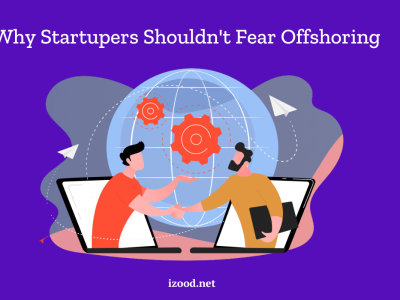In the digital age, social media has become an indispensable tool for businesses of all sizes. Whether you’re a freelance social media consultant or a full-fledged social media marketing agency, forming a Limited Liability Company (LLC) can provide you with a strong legal and financial foundation.
In this article, we’ll walk you through the important steps to form an LLC for your social media business.

Why Form an LLC for Your Social Media Business?
Before diving into the process of forming an LLC, it’s essential to understand why this business structure is beneficial for your social media endeavors. Here are some compelling reasons to consider:
- Limited Liability Protection: One of the primary benefits of forming an LLC is that it separates your personal assets from your business liabilities. This means that if your social media business faces legal issues or debt, your personal assets, such as your home or savings, are generally protected from creditors.
- Tax Advantages: LLCs offer flexibility in how they are taxed. By default, they are treated as pass-through entities, meaning that profits and losses are reported on your personal tax return. However, you can choose to be taxed as a corporation if it’s more advantageous for your business.
- Credibility: An LLC lends credibility to your social media business. It signals to clients, partners, and potential collaborators that you are a legitimate, professional entity. This can help you attract more clients and opportunities.
- Flexibility in Management: LLCs provide flexibility in how they are managed. You can choose to manage the business yourself or designate a manager to handle day-to-day operations. This flexibility is especially beneficial for solo entrepreneurs or small teams.
Let’s check out the step-by-step process to form an LLC for your social media business.
Step 1: Choose a Suitable Name
Giving your social media business a suitable name should be an essential step of your social media marketing strategy. Your chosen name should be unique, distinguishable from other businesses, and comply with your state’s naming rules. Once you have a name in mind, it’s a good practice to check if a suitable domain name is available for your social media business’s website.
Step 2: Appoint a Registered Agent
A registered agent is a person or entity responsible for receiving legal documents, such as lawsuits and official correspondence, on behalf of your LLC. This individual or entity must have a physical address within the state where your LLC is registered. Having a registered agent is crucial as it ensures that your LLC is notified promptly of any legal actions or official correspondence, giving you time to respond appropriately.
Step 3: File Articles of Organization
To officially create your LLC, you need to file Articles of Organization with your state’s Secretary of State office or a similar agency. This document typically includes essential information about your LLC, such as its name, address, registered agent details, and the purpose of your business.
The filing fee varies by state, so be sure to check your state’s requirements. For instance, if you are forming an LLC in California, you will be entitled to pay $70 as the state filing fees, whereas for Nevada you will have to pay $425. Once your Articles of Organization are approved, your LLC is officially established.
Step 4: Create an Operating Agreement
While an operating agreement is not always required by law, it is highly advisable to create one for your LLC. An operating agreement is an internal document that outlines the ownership structure, management roles, and operating procedures of your LLC. Even if you’re the sole member of your social media LLC, having this document in place is essential.
Your operating agreement should cover key areas such as member contributions, profit distribution, decision-making processes, and dispute resolution mechanisms. It’s a good practice to consult with a legal professional when drafting this document to ensure it complies with your state’s laws and meets your specific needs.
Step 5: Obtain an Employer Identification Number (EIN)
An Employer Identification Number (EIN), also known as a Federal Tax Identification Number, is a unique nine-digit identifier assigned by the Internal Revenue Service (IRS) to your LLC. Think of it as a social security number for your business. Obtaining an EIN is essential for various reasons:
You can obtain an EIN for your LLC by applying online through the IRS website, by fax, or by mail. It’s a straightforward process that typically requires basic information about your LLC.
Step 6: Register for State Taxes
Depending on your location and the nature of your social media business, you may be required to register for state taxes. This could include sales tax, use tax, or other state-specific taxes. The requirements vary from state to state, so it’s crucial to research and understand your state’s tax obligations.
Compliance with state tax regulations is essential to avoid penalties and legal issues down the road. Consult with a tax professional or the state’s tax authority to ensure you meet all tax obligations.
Step 7: Comply with Local Regulations
In addition to state-level requirements, your social media business may need to comply with local regulations and ordinances. These can include zoning laws, signage regulations, and business licenses. It’s essential to research and understand the specific requirements in your locality to ensure full compliance.
Some cities or counties may have their own business registration and licensing processes, so be sure to check with your local government or business development office for guidance.
Step 8: Set Up Accounting and Financial Management
Setting your financial goals is no easy process. Proper financial management is critical for the success and sustainability of your social media business. Here are some essential steps to consider:
- Open a Business Bank Account: Separate your personal and business finances by opening a dedicated business bank account. This helps maintain clear financial records and supports limited liability protection.
- Track Income and Expenses: Implement a robust accounting system to track your social media business’s income and expenses accurately. This will make tax preparation easier and provide insights into your financial health.
- Pay Taxes Regularly: Stay organized and meet your tax obligations by setting aside a portion of your earnings for taxes. This will prevent surprises when tax season arrives.
- Consider Professional Help: Depending on the complexity of your finances, you may want to hire an accountant or use accounting software to manage your books effectively.
Step 9: Secure Business Insurance
While forming an LLC offers limited liability protection, it’s still essential to consider business insurance to safeguard your social media business further. The type of insurance you need may vary depending on your specific activities, but here are some common types of business insurance for social media entrepreneurs:
- General Liability Insurance: This covers bodily injury, property damage, and personal injury claims that may arise in the course of your business activities.
- Professional Liability Insurance: Also known as errors and omissions insurance, this can protect you from claims of negligence or mistakes in your work as a social media professional.
- Cyber Liability Insurance: Given the digital nature of social media, this insurance can protect your business from data breaches, cyberattacks, and other online risks.
- Workers’ Compensation Insurance: If you hire employees, this insurance provides coverage for work-related injuries or illnesses.
Consult with an insurance professional to determine the appropriate coverage for your social media business based on your specific risks and needs.
Step 10: Maintain Ongoing Compliance
After forming your LLC, it’s crucial to maintain ongoing compliance with state and federal regulations. This includes filing annual reports, paying taxes, renewing permits and licenses, and amending necessary documents.
By staying compliant with all legal and regulatory requirements, you can avoid penalties, legal issues, and maintain the limited liability protection afforded by your LLC.
Conclusion
Forming an LLC for your social media business is a pivotal step towards achieving your entrepreneurial goals. It provides legal protection, tax advantages, and the flexibility to manage and grow your business efficiently.
By following the crucial steps outlined in this article, you can form an LLC for your social media business with confidence. Remember that while the process may seem daunting at first, the benefits of establishing an LLC far outweigh the initial effort and investment.







